By Dan Rubinstein
Photos by Chris Roussakis
Forty years ago, the morning after Canada Day in July 1979, a young professor arrived on the Carleton University campus for his first day of work.
To get his bearings, he walked along the Rideau River to the canal, crossed the footbridge over Hartwells Locks and sat on a bench looking up at Dunton Tower.
Then he went back to campus, took the elevator to the ninth floor of Dunton — at the time called the Arts Tower — and, after meeting a couple of colleagues in the School of Commerce, stepped into his office and surveyed the waterway and greenspace below.
“I was enthralled by the beautiful view,” recalls Prof. Tony Bailetti, the director of Carleton’s Technology Innovation Management (TIM) program, who is cross appointed to the Sprott School of Business and Faculty of Engineering and Design and is widely regarded, both on and off campus, as the university’s entrepreneurship guru.
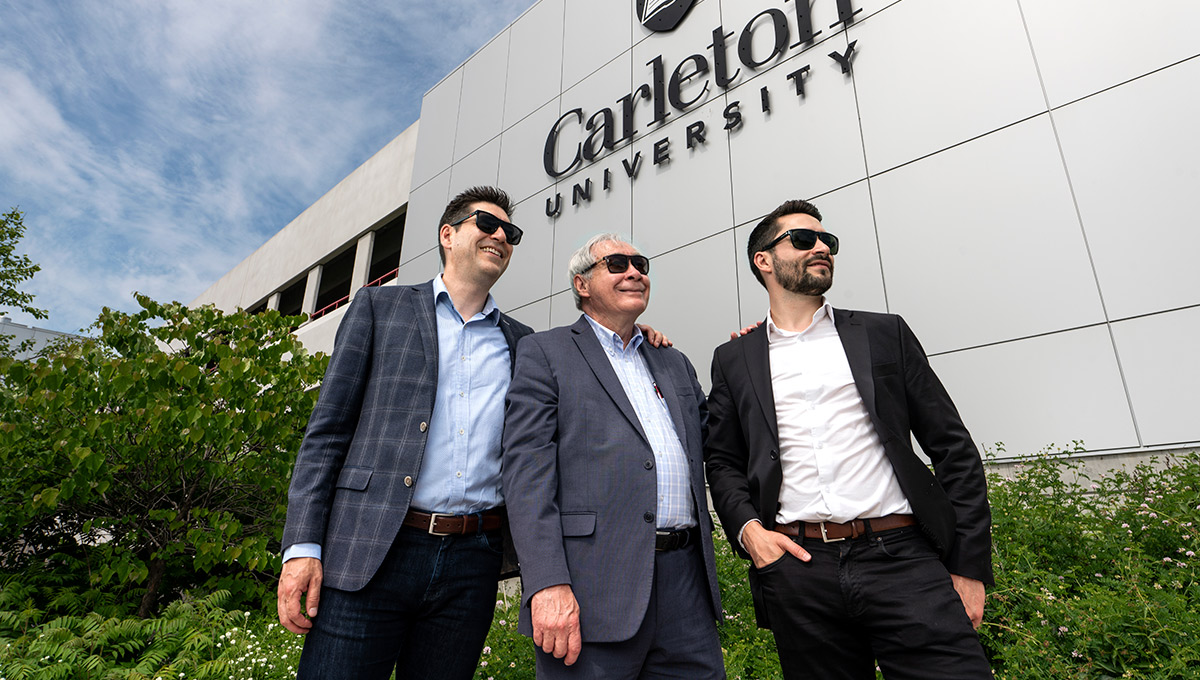
Prof. Tony Bailetti (middle) with his sons Marco and Eduardo
“Carleton was a very interesting place at the time. It was still fairly young as an institution, so everything was new exciting and we didn’t know where things would go.”
Bailetti, who was born and raised in Peru and went to graduate school in the United States before moving to Canada, didn’t expect to stay at Carleton forever. But he was willing to put his heart and soul into the university and see where it led.
Ottawa and the Carleton community turned out to be a great place to raise a family, develop his career and help generations of students learn about business and entrepreneurship.
Four decades after that propitious early-July morning, two of his sons are proud alumni — one of whom is teaching at Carleton this summer — and Bailetti remains passionate about inspiring people to make a difference in the world.
“Everywhere I go, I meet former students of his who he has influenced over the years, whether it was two years ago or 20 years ago, and they all ask me to say ‘hello and thank you’ to my dad,” says Eduardo Bailetti, who graduated with a Master of Entrepreneurship from the TIM program in June and is now teaching an introduction to entrepreneurship course for Sprott as a contract instructor.
“He’s had an impact on so many people who created companies and careers. Everyone has a story and something kind to say about him. He did so much without asking for any recognition. I’m proud to have my name recognized for his reputation, and I’m excited to see what the future will bring.”
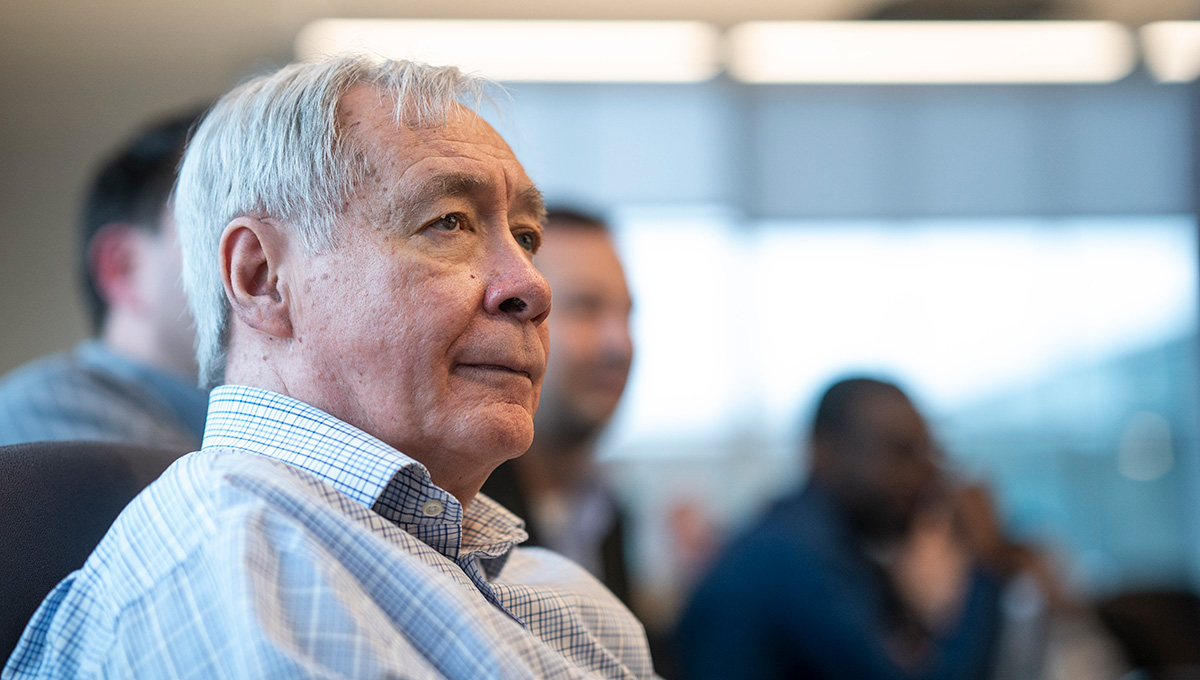
Continuing His Education Abroad
Tony Bailetti is from the small city of Huancayo in Peru’s central highlands. His mother was a teacher and his father was an officer in the military.
He studied industrial engineering at the National University of Engineering in Lima, the capital, and after graduation got a job working for the Peruvian state-owned mining company — the industry had been nationalized — because they needed smart young people who spoke English.
“That’s when I got interested in business,” says Bailetti.
“It was all about buying low and selling high. I had never heard of the London Stock Exchange. But I started to learn.”
Two years later, in 1970, because the company encouraged its young employees to continue their education abroad, he applied for and was awarded a Fulbright scholarship to study in the U.S. Bailetti went to the University of Cincinnati, where he earned an MBA and PhD in finance, a path he chose because he figured he knew everything about engineering already.
Bailetti didn’t plan to get a PhD. He and his wife Anne Marie had two young kids and bills to pay, but he was asked to teach a finance course and got a second job as an overnight security guard at a bank, which gave him time to prepare for classes and study after walking the rounds and checking locks on quiet shifts.
“I worked like a dog,” he says, recalling the pre-computer, pre-PowerPoint era, when professors had to type and re-type notes and crank out copies of classroom handouts. “But it was rewarding, and I kind of had a knack for it. I realized that I wasn’t teaching students. I was learning with them. If you just teach, it doesn’t resonate. If you’re also learning, it really sticks with them.”
Bailetti received more than a dozen job offers from throughout the U.S. after completing his PhD, but even though Anne Marie was from Cincinnati, her mother was Canadian, and the couple wanted to raise their family in Canada. So he accepted a faculty position at the University of Manitoba, and three years later, prompted in part by Winnipeg’s winter weather, he took a chance on a new opportunity at Carleton.
“I didn’t know much about the university when I applied,” says Bailetti, “but there seemed to be a good fit with what I wanted to do. I was in the finance area, which Carleton’s wasn’t doing much of at the time, so I saw the potential to build something. And it clicked.”
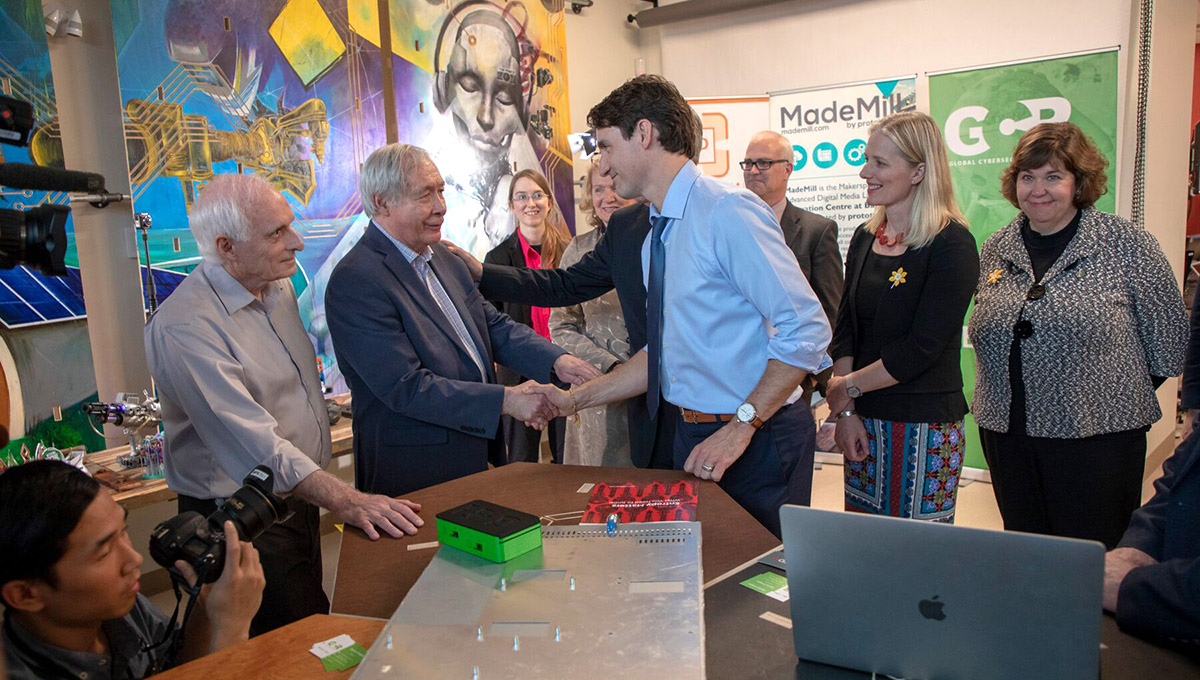
Connecting to the Community through Research
When Bailetti started at Carleton, the School of Commerce — the precursor of the School of Business that ultimately became Sprott — was part of the Faculty of Social Sciences.
Two years later, he became director of the commerce school. To help attract more students and keep pace with a changing world, he pushed, at a meeting with the chairs of units such as Economics, Political Science and Sociology, for a school with a wider mandate that did more research.
By the mid-1980s, Carleton had established its business school and started a graduate program, a master’s degree in management studies, which Bailetti saw as a way for business professors “to create stronger links with the community, with academics elsewhere in the university and with other researchers.”
In 1988, while on sabbatical, Bailetti took a temporary positon with Bell Northern Research, directing a half-engineering, half-business technology management unit for the company that would eventually be absorbed into Nortel Networks.
He ended up staying with the company for six years, immersing himself in emerging communications technologies, such as email and local area networks, while continuing to teach one course at Carleton.
When Bailetti returned to the university full-time in the mid-1990s, the Faculty of Engineering and School of Business wanted to launch a new joint Telecommunication and Technology Management program.
“They approached me about it when I came back, and I’ve been working on it ever since,” he says about the program that became today’s TIM.
At the time, high-speed internet and wireless and mobile communications were in their infancy, but Bailetti saw the potential for a program that taught students how to use technology-focused businesses to improve people’s lives. He also saw the potential to build a bridge between two different faculties — the type of leap into the unknown that requires leadership.
“A leader has to be able to take the risks required to champion a vision of the future,” he says. “You have to create a compelling image of what the future will be, and you have to know how to get from here to there. You’re like a bus driver — you need to bring people along with you.
“You also need the ability to continually improve the organization you work for, and have to know how to instill leadership skills in others. The best leaders are the ones who enable others to lead as well.”
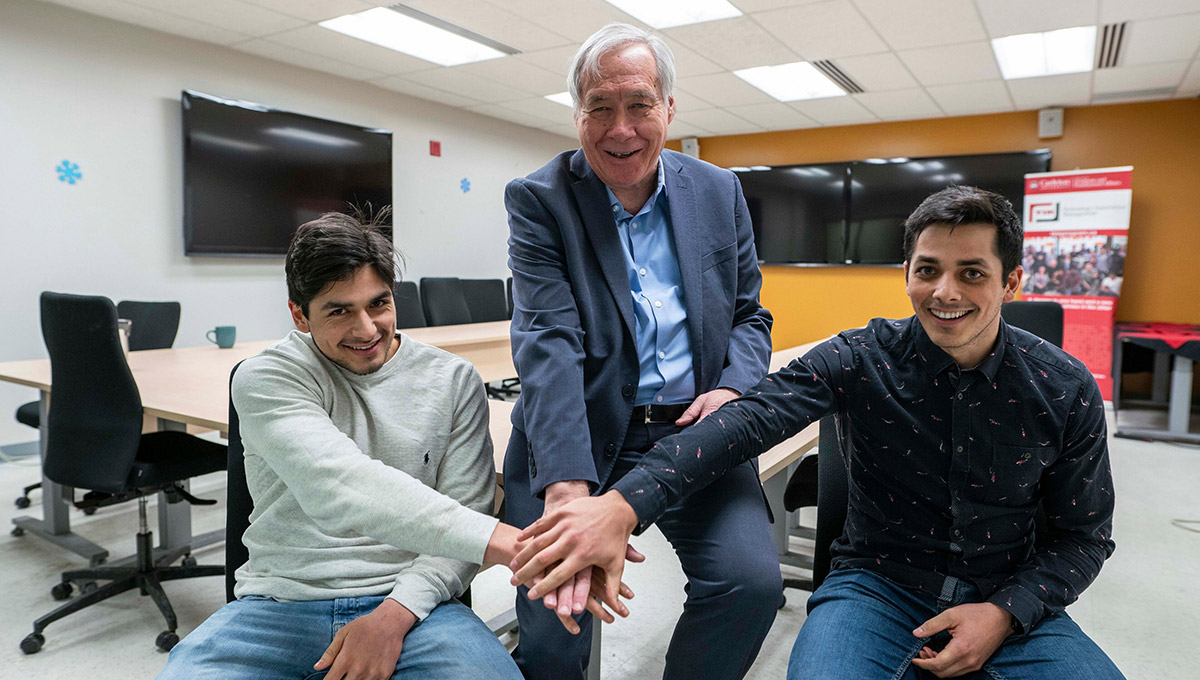
One of the Best Business Incubators on the Continent
Bailetti’s growing interest in the fusion of technology and entrepreneurship was the fuel for another new initiative at Carleton, the Lead To Win (LTW) business accelerator.
Born in 2002 amid a round of cutbacks and layoffs in the city’s technology sector, LTW started as a bootcamp for technology workers who had great ideas but no business experience. Over the years, it evolved into an ecosystem that has supported hundreds of start-up companies that have generated tens of millions of dollars in revenue. In 2015, LTW was named one of the top 10 university-based business incubators in North America.
“But the biggest accomplishment, I’ve always claimed, has been the success of my students, hundreds of whom have started companies or carved out important careers,” says Bailetti, who estimates that he has supervised more than 150 thesis projects through TIM and LTW. “Any award pales in comparison to what they’ve done.
“The word ‘entrepreneurship’ was a revelation when I started at Carleton. Now it’s normal to hear it. But back then, nobody knew what it was, and it’s really about creating a better world. You see a problem and you go out and solve it.”
The Canada-India Centre’s Canada-India Acceleration Program (CIAP) is just one example of how Bailetti has helped spread this vision of entrepreneurship at Carleton. CIAP, which supports female tech entrepreneurs from both countries, “embodies everything that I think a university should be doing,” he says.
Bailetti’s belief in the importance of internationalization — and the importance of Carleton expanding its presence overseas — sent him to China for two weeks in early July, where he accompanied five student-entrepreneurs from TIM on a trip to explore market opportunities in a country that, like India, has a population approaching 1.4 billion.
“I’ve had the privilege to mentor and learn with so many students,” he says. “I’m always happiest when I’m working with students.”
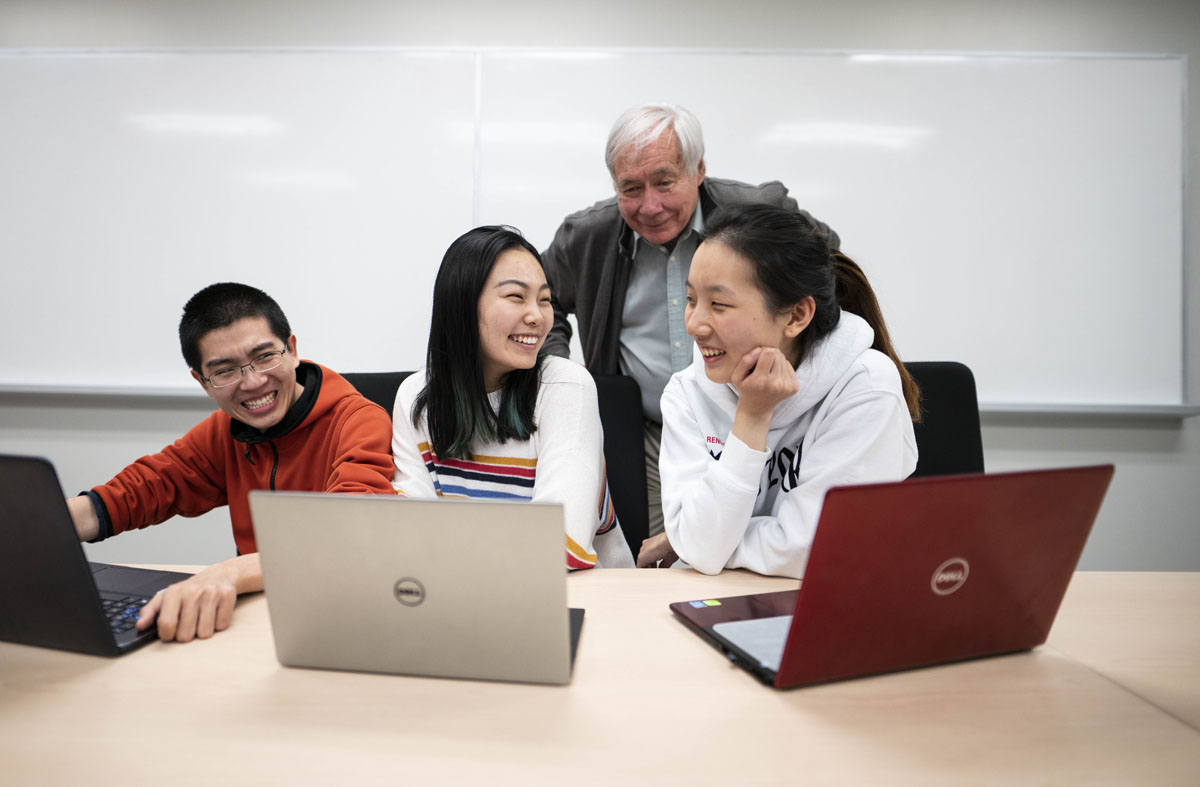
The Brothers Bailetti
Eduardo Bailetti was one of those students over the past couple years.
He took TIM classes taught by Tony — other instructors marked his work, to avoid any conflict of interest — and gained a new appreciation for his father.
“It gave me a different perspective when I saw how much passion and preparation he put into his courses,” says Eduardo, who is the youngest of Tony’s four children, with siblings Marco (another Carleton alumnus), Katia (a University of Ottawa grad) and Sean (Algonquin College). “I understood how much work is required to stay on top of content as a professor. I was watching him in his element. It was wonderful to be part of his professorial world.”
At TIM, Eduardo did research on “transnational entrepreneurship” — essentially, how domestic start-up companies can expand to exist in more than one country — and helped create the GERS (Grow Early, Rapidly and Securely) Project.
Having started a couple of companies himself in the years between earning an economics degree at Carleton and enrolling at TIM, he knew firsthand what challenges real-world entrepreneurs face and was able to mesh those experiences with the theory and context provided by grad school.
“After one or two semesters, my whole perspective on business changed,” says Eduardo.
“I went from feeling like I knew almost nothing to feeling like a ninja.”
Eduardo and his brother Marco both began their relationships with Carleton as children, attending sports camps at the university over the summer.
“Carleton has been like a family to me,” says Marco, a partner at Deloitte in Toronto who graduated from Carleton with a Mass Communications degree in 2000. “I grew up at the university.
“My degree has helped my career in a number of ways,” he continues, thinking back to his undergraduate years. “It gave me a more critical eye for media strategies and how to communicate certain messages. And it helped me determine which messages and which technologies are relevant to which audiences, which is the key to this field.
“Just because a technology is available, it doesn’t mean you need to use it,” adds Marco, echoing an idea that resonates throughout TIM and LTW.
Marco and Eduardo both credit their father with teaching them so much, but not by lecturing his sons. Instead, like most great leaders, he teaches by example.
“What we’ve taken away from him is what we’ve seen him do,” says Marco. “We saw his dedication, his patience, his humility. As a kid, these lessons are not always obvious.”
As an alumnus, Marco has visited to Carleton to talk to students about sales, marketing and business, giving back to the school that fostered his success and, like his father, putting students front and centre.
“They are the people he committed most of his time to,” says Marco. “We saw the investment he made, without expecting anything in return, especially with students who came from outside this country. My father has a deep gratitude to Canada because of the opportunities it has given us. What Canada — and Carleton — have provided, beyond a means to pay the bills, has had a ripple effect on our family and on so many others.
“Carleton and my father are similar in many ways. They’re both mavericks compared to other universities and other professors. They do their own thing and shape their own paths.”
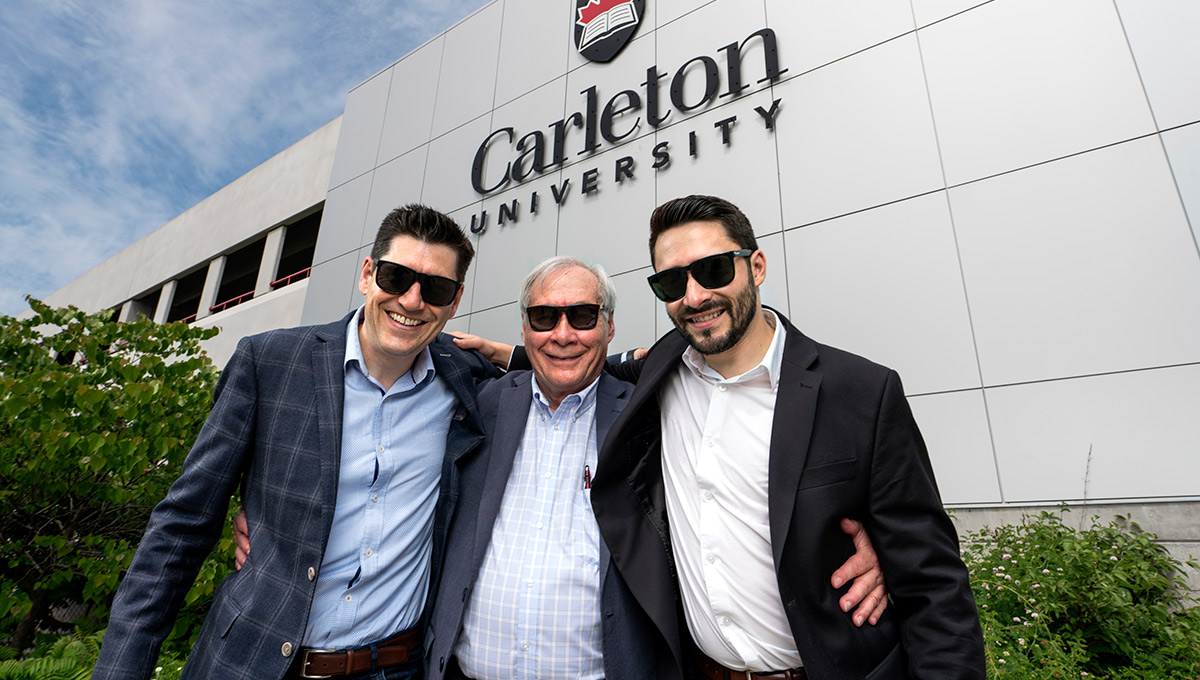
Friday, July 12, 2019 in Entrepreneurship, Innovation, Sprott School of Business
Share: Twitter, Facebook



